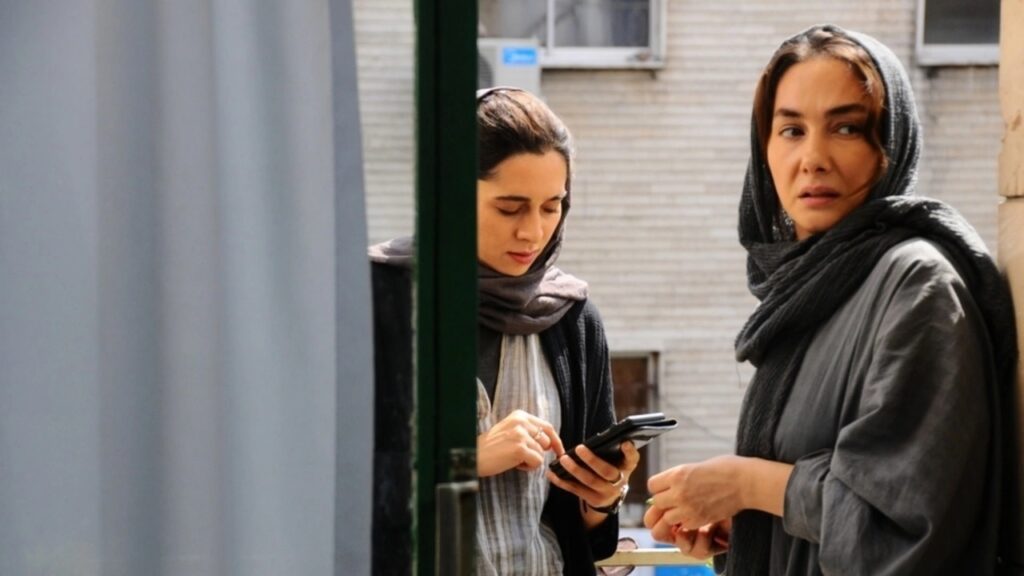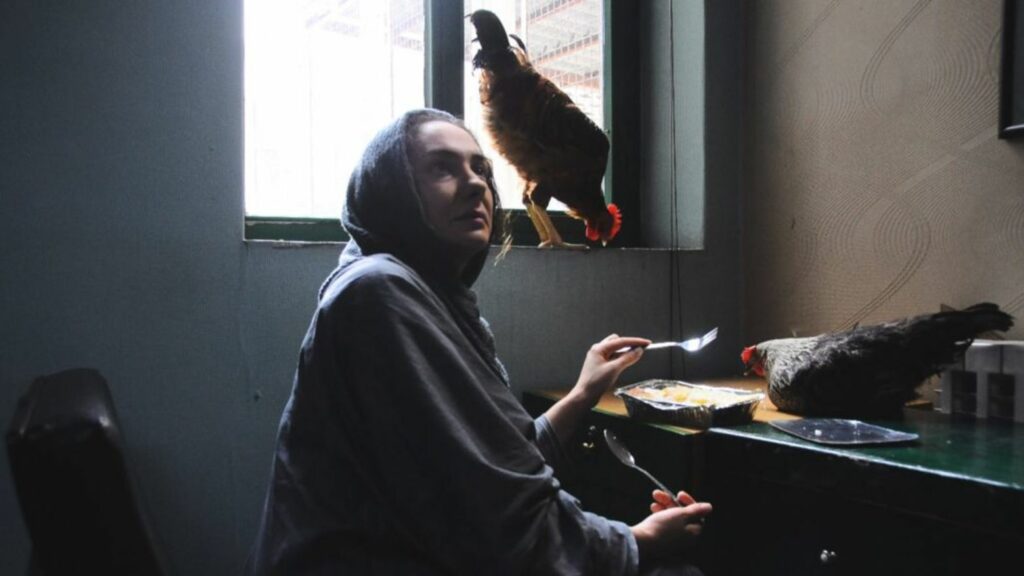The dream of being a filmmaker is often elusive, and when this journey is captured on film, it is overwhelmingly presented from a Eurocentric or American perspective. Iranian film director Faeze Azizkhani’s The Locust shows that this dream can take hold all over the world, and for all the particular hurdles different places can throw up, some struggles – money, authorship, and creative differences – will be found anywhere. The Locust is a film about ambition, opportunity, and disappointment, capably led by the impressive Hanieh Tavassoli and Pegah Ahangarani, who bring this small-scale drama to life.

Hanieh is a forty-year-old woman in Tehran who dreams of turning her semi-autobiographical script into a film; however, she owes her landlord so much in unpaid rent that she’s pushed to sell the script to her friend Pegah. Directing it herself, Pegah keeps Hanieh around to act as an advisor on the film, but as the early days of rehearsing and script-tweaking go on, Hanieh feels that her story is being twisted beyond recognition. This leads to arguments, conflict, and an eventual meltdown.
There is a claustrophobic quality to many of the scenes, as tensions are quick to boil over and Hanieh’s exasperation grows. Many of these moments fly by, with heated discussions about narrative or stylistic choices that are not always easy to follow. As such, The Locust sometimes becomes lost in itself, focusing on the creative differences at the expense of Hanieh’s inner world. However, whenever the film breaks the fourth wall, or in a scene with Hanieh’s father – which assumes a significant context by the climax – Azizkhani’s film emerges as a fascinating and moving character study.
Hanieh, in particular, is an engaging, worn figure who presents as much more than a hapless, unfortunate creator. In a nod to relatively stereotypical filmmaker origin stories, she has posters of The Godfather and Leon the Professional plastered onto her walls, while a pair of rowdy chickens (asides providing comic relief) sharply juxtapose her personal goals with her lived reality. She is someone struggling to make her very soul heard and who is afraid of her story (past and present) being transformed beyond her control. With the arrival of her estranged mother, Hanieh’s struggles are laid bare. It’s the relationship between Tavassoli and Ahangarani, however, which proves the film’s highlight. As warring friends, their scenes have equal measures of warmth and hostility in ways that continually underline what is at stake for both of them.

Some of the strange camerawork can prove distracting, as can one melodramatic moment towards the end that feels out of place. However, The Locust is a capably done and fixating drama about creativity and authorship. Azizkhani’s film lends a more global, feminist perspective to artistic debates that male, Eurocentric figures traditionally dominate, and it feels refreshingly honest in its depictions of family struggles and legacy. If nothing else, you will have a newfound respect for the struggles some people have to endure to make their voices heard, whether as a filmmaker or just as a human being.
The Locust screened as part of the 2022 Edinburgh International Film Festival.
